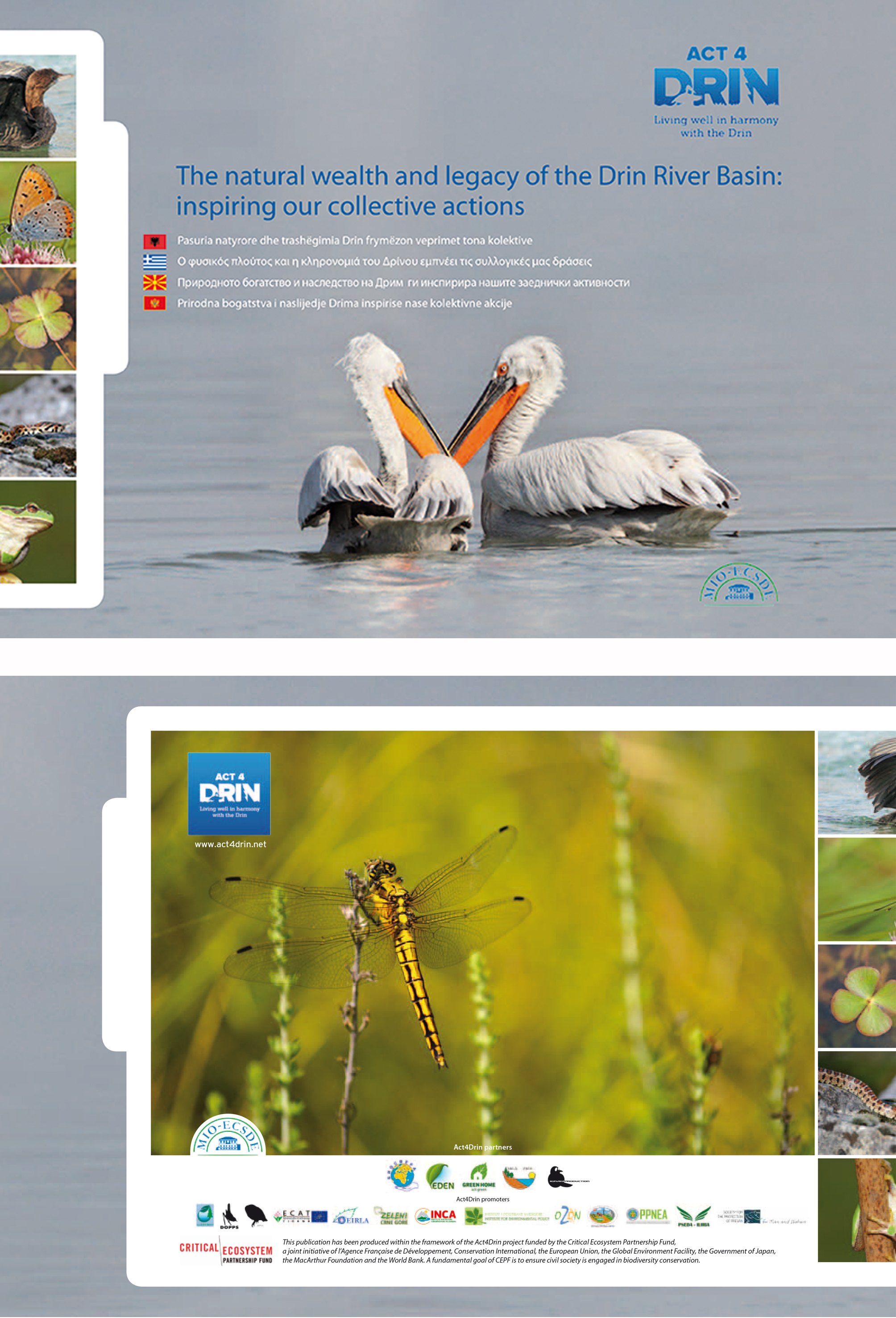
The natural wealth and legacy of the Drin River Basin: inspiring our collective actions, MIO-ECSDE, 2015
Located in the south–western Balkans and connecting five riparian countries (Albania, Greece, FYR of Macedonia, Kosovo and Montenegro), the Drin River Basin is without a doubt one of the most important freshwater biodiversity hotspots in Europe.
For the first time ever a multilingual (five languages) publication that highlights the exceptional wealth of freshwater biodiversity of the Drin River Basin has been produced via a collective effort of the region’s civil society. Entitled “The natural wealth and legacy of the Drin River Basin: inspiring our collective actions”, it aims at raising public awareness on the value of our common natural wealth and ultimately triggering individual or collective actions towards safeguarding the basin’s biodiversity and its invaluable ecosystem services.
The publication was developed by MIO-ECSDE (Mediterranean Information Office for Environment, Culture and Sustainable Development – a Federation of Mediterranean environmental NGOs) within the framework of the CEPF-funded Act4Drin project (www.act4drin.net), implemented in collaboration with BIOSFERA, EDEN, GREENHOME, MES and KAWKA PRODUCTION. The project seeks to raise public awareness through a wide range of actions, enhance knowledge and empower NGOs to protect and conserve freshwater ecosystems in the Drin River Basin.
This publication concretely displays the commitment and solidarity of environmental NGOs of the region to protect and conserve the Drin River Basin. The Act4Drin project promoters include the following thirteen NGOs: Albaforest, BirdLife Slovenia (DOPPS), Society of bird research and nature protection (DPPVN), Environmental Center for Administration and Technology (ECAT), EIRLA Association, Greens of Montenegro, Institute for Nature Conservation in Albania (INCA), Institute for Environmental Policy (IEP), Environmental Movement “OZON”, Permaculture and Organic Agriculture (POA), Protection and Preservation of Natural Environment in Albania (PPNEA), PSEDA ILIRIA and Society for the Protection of Prespa (SPP).
Access the publication here